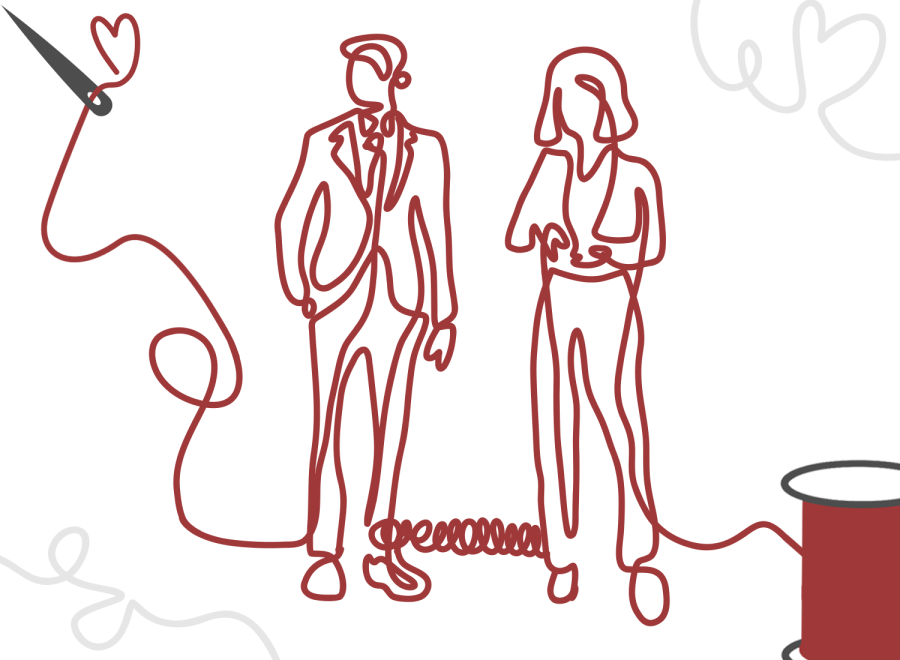Mental health: negative home environments and experiencing gaslighting (Opinion)
Welcome to The Mav’s mental health editorial series: The Patchwork Project
March 31, 2022
All opinions are those of the writers themselves and do not promote any official view or stance of Mead High School or St. Vrain Valley Schools.
This article contains brief mentions of substance abuse. Reader discretion is advised. If you or someone you know is experiencing substance abuse or addiction, please refer to the professional resources found at the bottom of this page.
My home life from a young age wasn’t the best environment for a kid to grow up in. I had one parent dealing with substance abuse and the other struggled with alcohol addictions. They often made it seem like everything that was going wrong in my childhood was my fault — it was my fault that our lives weren’t the best place for a 5-year-old. Since I could first remember, all of the blame was pushed onto me, and I felt guilty for a terrible situation I couldn’t ever control.
I was scared I would never move up in life. Just stay stuck in a bad neighborhood without a job, forced to be around such poor parental figures.
Finally, my relief came to me in Grade 5 when I was bouncing in and around the foster care system. My angels came in the form of my grandparents. Their initial life plans and choices may not have lined up with taking me in, but they welcomed me nonetheless. They were still there for me.
Not only did my guardians help me physically find a home, but also mentally. They helped take some of that pressure that I had off of me, reminding me that nothing happening was my fault. It was a much better situation.
Now, they feel like family roommates in a way. Yes, they’re kind of like parents because they expect things from me, but I respect them and they give me that same respect.
My grandparents try their best to understand things from my point of view. They’re involved in my life without pushing certain unrealistic expectations. Of course they make mistakes in their parenting — sometimes they try to live through me, making me feel a little trapped, but I respect and am thankful for their involvement anyways.
When I try to have more stable mental health, most would want a solution to a problem. But “solutions” when it comes to mental health are impossible. I just try to make sure that my mental wellbeing is not impacting me in a negative way or dragging me down like a boulder at that point in my life.
I focus more on trying to find a way to walk next to my problems and continue to acknowledge and live with them while better managing them.
Some of the things I do to help are physical activities like sports, lifting weights, or even going on a walk helps me forget about trials even if it’s for a small amount of time. Like any other teenager, I also love music and talking to friends. It helps keep my mind off of things and focus on topics not in my own life, but in the lives of others. Of course if this is done too much, it’s not necessarily healthy, but used sparingly, it can help take your mind off of your own troubles.
Music has helped me because it’s relatable and helps me put my thoughts and feelings into words and sound. On top of that I see a therapist twice a month to help get my feelings out. My therapist has me do a physical exercise called EMDR (Eye Movement Desensitization and Reprocessing) to help calm me down. Not only do they have me do this at the office, I can do it on my own at home too.
I encourage my peers to remember that mental health improvement, progress, and stability is an individualized experience that will be different for everyone. Give yourself time to process and find things that work best for you.
If you or someone you know is seriously struggling negatively with substance abuse or addiction, please reach out for help.
In case of an emergency in personal health and safety, call 911.
The Substance Abuse and Mental Health Services (SAMHSA) national hotline can be reached at 1-800-662-4357.
The Weld County crisis walk-in service, North Range Behavioral Health, can be found on 928 12th St., Greeley, CO 80631. For Boulder County, Boulder Crisis Services can be reached at (844) 493-8255.
Other mental health resources include the North Colorado Medical Center/Banner Health — you can call (970) 810-4121 or visit 1801 16th St., Greeley, CO 80631 — as well as the UCHealth Greeley Hospital. The hospital can be reached at (970) 652-2000. Their address is 6767 W. 29th St., Greeley, CO 80634.
Boulder County addiction treatment centers and detox assistance services and information can be found here. To speak to a substance abuse professional after hours call (303) 441-1198.
Mental Health Partners Addiction Recovery Center detox facility, open 24/7, can be found at 3180 Airport Road in Boulder.
High risk drinking and binge drinking resources are available here.

